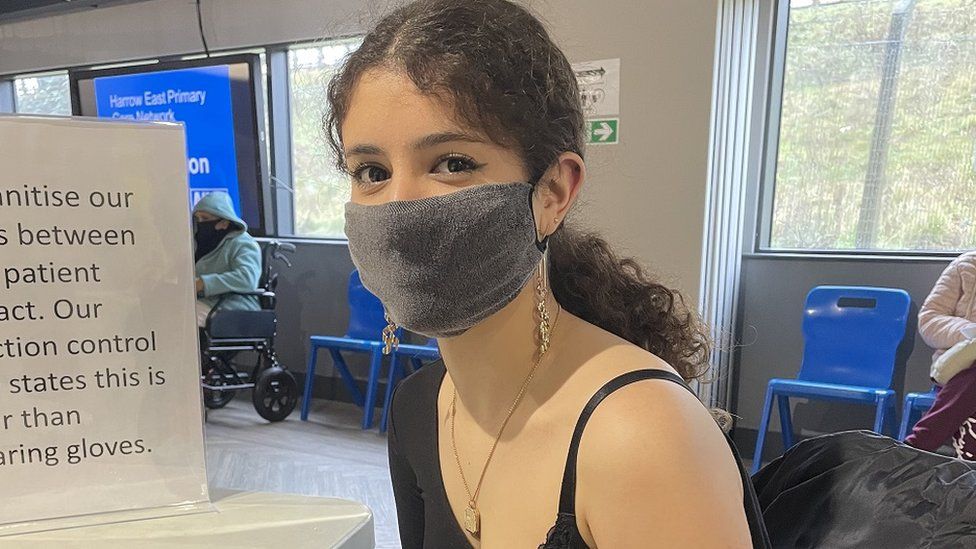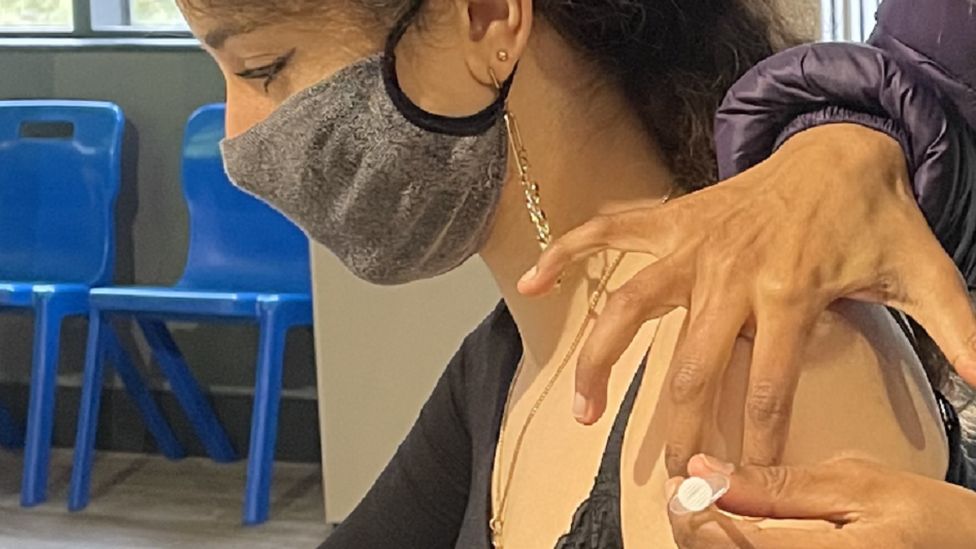Covid-19: London teenage girl one of youngest to get vaccine
 image copyrightEsther Rich
image copyrightEsther RichA 16-year-old from Muswell Hill has become one of the youngest people in the country to receive a Covid vaccine.
Esther Rich has an inherited blood condition, which led to the removal of her spleen when she was five.
Both she and her father have hereditary spherocytosis and are categorised as being clinically extremely vulnerable, making them eligible to get the jab.
The World Health Organisation does not recommend vaccinating under-16s, even if they are in a high-risk group.
Ms Rich has been shielding throughout each lockdown period, as her medical condition makes her more vulnerable to infection.
She says she misses going out with her friends, parties, and going to school.
Hereditary spherocytosis is an inherited disorder where the red blood cells have an abnormal shape.
 image copyrightEsther Rich
image copyrightEsther Rich"When I knew I was getting the vaccine I was really excited because by the end of lockdown I will have immunity and won't have to shield any more," she said.
"I can't wait to go on holiday - I want to go to Croatia with my friends in the summer. I also really want to see my cousins and my Grandma Jessica".
More than 10 million people in the UK have received at least one dose of a coronavirus vaccine - part of the biggest inoculation programme the country has ever launched.

What is a spleen and what does it do?
The spleen is a fist-sized organ in the upper left side of the abdomen, next to the stomach and behind the ribs.
It is part of the immune system, and fights invading germs in the blood.
It controls the level of blood cells (white blood cells, red blood cells and platelets) and filters the blood and removes any old or damaged red blood cells.
People can survive without a spleen because the liver can take over many of its functions but a risk remains that a serious infection may develop quickly.
Source: NHS



No comments